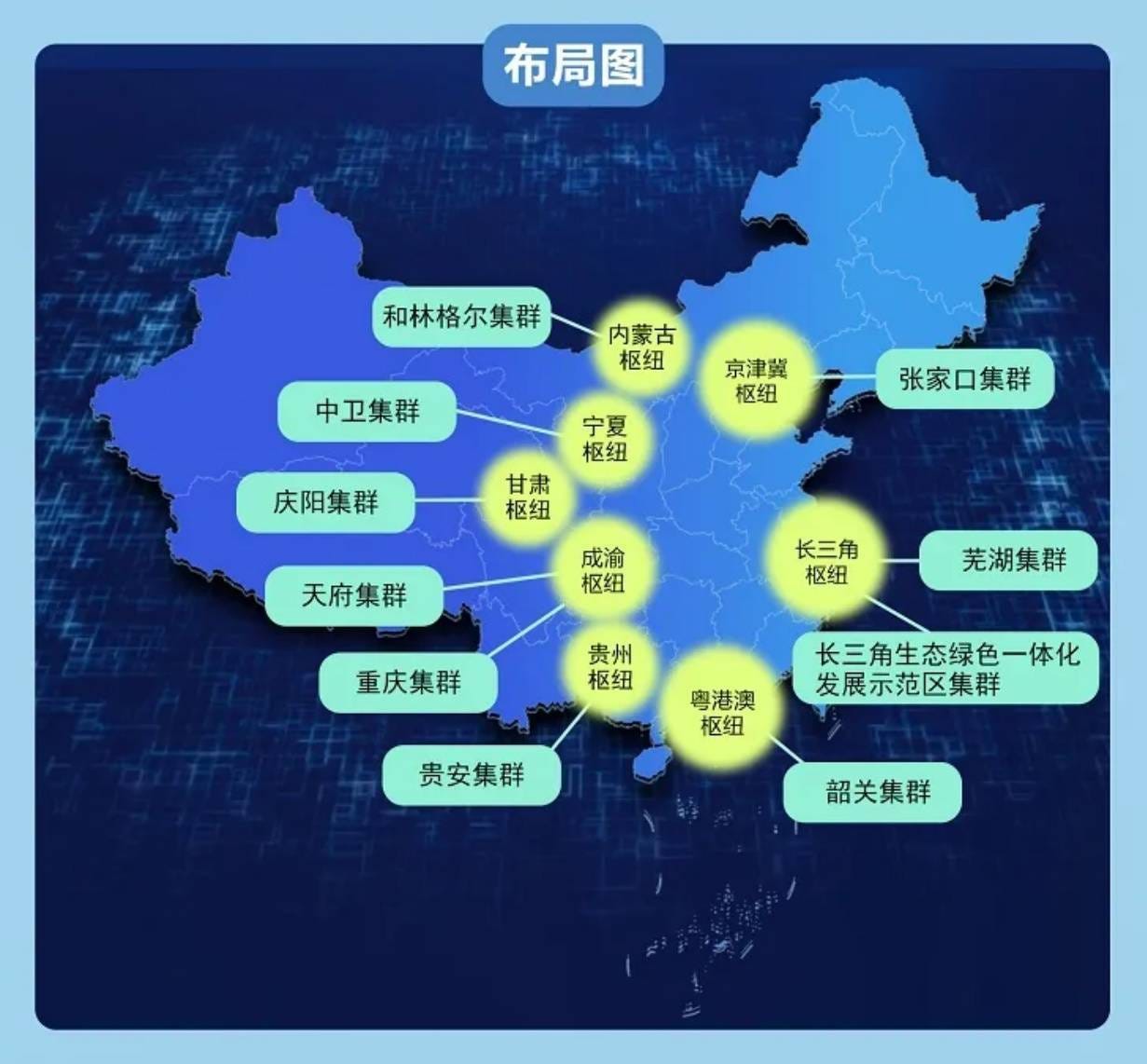China Kicks off Digital Infrastructure Mega Project; US Government Ends "China Initiative"; 3-Month-Old Startup Raises $316M for L4 Self-Driving
Weekly China AI News on February 28
Dear readers, I wanted to thank you for your subscription and support to Recode China AI. Last week was devastating and brutal for Ukraine and its 44 million residents after Russia launched "special military operations" on Feb. 24. We are praying for peace in Ukraine and people who show undaunted determination and courage to protect their country. No war again, war settles nothing.
News of the Week
China Kicks Off Digital Infrastructure Mega Project ‘East-West Data Migration’
China has launched engineering infrastructure projects at a scale unprecedented in human history. For example, the decades-long South-North Water Transfer project aims to move water from Southern China to a more arid and industrialized North. West-East Power Transmission is another mega project that refers to transporting electricity from the West with surplus energy to a densely populated East.
Now China is applying its playbook to digital infrastructure. Top Chinese authorities approved the plan of building national computing hubs and national data center clusters in eight regions - three eastern regions and five provincial areas.
The project, literally translated as “East-Data-West-Compute (东数西算)” or “East-West Data Migration”, aims to boost the total data storage and computing capacity of the country while more efficiently allocating computing across different areas under the same network. For example, eastern regions like the Beijing-Tianjin-Hebei city cluster, the Shanghai-centered Yangtze River Delta, and the Guangdong-Hong Kong-Macao Greater Bay Area are homes to over 423 million people, making their computing hubs critical for massively parallel and low-latency processing of hot data. On the other side of the coin, data centers from western areas, particularly Gansu Province and Inner Mongolia with abundant sources of renewable energy, are well-suited for cold data storage or offline data analysis.
The eight computing hubs under the “East-West Data Migration” project will account for 70% of the total computing capacity in China by 2025 and 85% by 2035, bringing an investment of RMB400 billion yuan.
Chinese Internet companies like Tencent, Alibaba, and Baidu, telecom giants Huawei and China Mobile, and server providers like Inspur, are embracing the mega projects and committed to investing more in building data centers.
US Government Ends China Initiative Over Racial Concerns
In 2018, the US Department of Justice announced the notorious “China Initiative” in an attempt to protect US laboratories and businesses from espionage. Against the backdrop of deteriorating US-China relationships during the Trump term, the US government investigated and charged scientists and professors at US universities who hide their ties with the Chinese government - research collaborations, economic benefits, and overseas talent programs.
However, the program raised widespread concerns over racial profiling as a number of high-profile Chinese-ethics professors were involved in legal cases, leading to a chilling atmosphere in academia. Critics blamed the government for biased treatment against the Chinese and Asian community and provocative anti-Asian hate.
Gang Chen, a Chinese-born American mechanical engineer and nanotechnologist was arrested one year ago for alleged concealing research ties to the Chinese government. The federal court recently dropped the case after founding Chen was not guilty of any offenses he was charged with. “In the end, you’re treated like a spy. That just breaks your heart. It breaks your confidence,” Dr. Chen told New York Times.
Last week, the department called an end to the China Initiative after a months-long review. Says Assistant Attorney General Matthew Olsen, "while I remain focused on the evolving, significant threat that the government of China poses, I have concluded that this initiative is not the right approach." The program will be reframed to address national security concerns from other countries instead of China only.
Papers & Projects
Top AI conference AAAI 2022 kicked off last week. The paper Online certification of preference-based fairness for personalized recommender systems from Meta AI and Université PSL has been crowned the Outstanding Paper. The paper AlphaHoldem: High-Performance Artificial Intelligence for Heads-Up No-Limit Poker via End-to-End Reinforcement Learning from the Institute of Automation received the Distinguished Paper Award. The AlphaHolden is on par with sophisticated human players in Texas Holden and is 1,000 times quicker than that of first-generation AI hold'em players DeepStack.
Graph neural networks have brought significant development in molecular property prediction and drug discovery. In a Nature Machine Intelligence paper, Baidu researchers proposed a novel method named GEM, which consists of a geometry-enhanced graph neural network and self-supervised learning tasks to learn 3D spatial molecule information. The model outperforms other state-of-the-art models in 14 out of 15 benchmarks. You can read the paper for more.
Shanghai Artificial Intelligence Laboratory, SenseTime, Chinese University of Hong Kong, and Shanghai Jiaotong University unveiled OpenGVLab, a general vision open-source platform that encompasses 10B+ data, vision benchmarks for classification, detection, segmentation, and depth estimation, and pre-training AI models based on SenseTime’s home-grown vision model INTERN. Check out the platform for more.
Rising Startups
Pegasus (云骥智行), an autonomous driving startup founded merely three months ago, has raised RMB2 billion yuan ($316 million) in its angel round led by GLVentures. The Shanghai-based company is dedicated to L4 autonomous driving in robotaxis, deliveries, and road freight. The mastermind behind this is Zhang Wen, the founder of Chinese GPU developer Biren Technology.
RoboSense (速腾聚创), a leading solid-state LiDAR supplier in China, has raised RMB2.4 billion ($379.3 million) in a new investment round from BYD, Xiaomi, Yutong Bus, and others. Founded in 2014, the Shenzhen-based startup offers a wide range of LiDAR perception system solutions, including MEMS LiDAR, mechanical LiDAR, fusion hardware, and perception software.
Energy Singularity (能量奇点), a nuclear fusion energy company, has raised RMB400 yuan ($63 million) in its debut round led by EV upstart Nio and developer of Genshin Impact miHoYo. Founded in 2021, the company will use the funds to build the world's first small-scale tokamak experimental device based on high-temperature superconducting materials.
Rest of the World
At a workshop last week, Meta revealed how its AI technologies bring metaverse closer to reality. One impressive demo named Builder Bot showed how users customize virtual environments by simply describing them. A conversational AI called CAIRaoke can enable instant translations for people speaking different languages. You can watch the Meta AI workshop for more.
A team of Stanford University researchers significantly sped up DNA sequencing by using AI technologies, setting a new Guinness World Record. With only five hours and two minutes, researchers can diagnose a genome starting by using nanopore sequencing on Oxford Nanopore's PromethION Flow Cells to generate more than 100 gigabases of data per hour and speeding up the base calling and variant calling processes with Nvidia GPU on Google Cloud. You can read the paper for more.
15% is a widely adopted masking rate in training language models, but a team of Princeton University researchers discovered that masking up to 40% of input tokens can outperform the 15% baseline, and even masking 80% can preserve most of the performance, as measured by fine-tuning on downstream tasks. You can read the paper for more.






